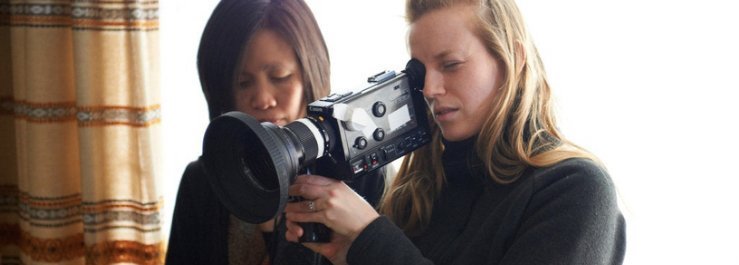'Women Talking' Review: Confronting The Patriarchy Both Then and Now [TIFF 2022]
Canadian director Sarah Polley brings her adaptation of Miriam Toews’ book to TIFF.
The filmmaking world has been a male dominated field. It’s that simple, it’s that unfair. Some progress, thankfully has been made since that time where we find ourselves in a new era of filmmakers who are eager to tell the stories of women that need to be told, and more crucially, not from the perspective of a man.
Some, unfamiliar with the source material may simply believe this film is merely in a room of women talking, and it’s important to dispel that. The story follows a group of women in a deeply religious community (very similar to Mennonite) who have been tasked with making a decision for the rest of the women in the community after countless acts of sexual assault and rape have been carried out by men in the community. Their decision comes down to staying and fighting, presumably in a literal sense, or leaving and finding refuge elsewhere. It came down to these two decisions after a vote was carried out by the women that also had doing nothing as an option, but did not get nearly enough votes as the others. This is where the title of the movie comes into play, its women talking. Not in a plotless sense, there is a decision that needs to be made and grievances that need to be heard.
Ultimately, the decision makes little difference to how it impacted the audience. Through the dialogue so carefully crafted, we know that any decision they would have made was always an act of courage. During the Q&A the cast and crew was asked what they would want people to take away from the film. One of the younger cast members responded that there is no right answer in this situation and all responses are valid.
This film marks the fourth feature film by Sarah Polley, a performer in her own right who transitioned into writing and directing in the mid 2000s. This is the first since 2012 and there was no better place to see this film than at TIFF as Polley is a native Torontonian. The cast bolsters big names like Rooney Mara, Claire Foy, Jessie Buckley, Ben Whishaw, and a small role from Frances Mcdormand, who was the catalyst for this movie being made. She brought the book to producers in hopes of adapting it into a feature film. Each actress does an incredible job at portraying different emotions while dealing with the same struggle. Ben Whishaw serves as the note taker who is in love with Mara’s character and he turns in a beautiful performance that may help bridge the gap between male audiences connecting with the film. The score, composed by Oscar winning composer Hildur Guðnadóttir, who is best known for the Joker score, crafts a beautiful folksy, yet dark tone. The only true downfall of this movie is the color grading, opting for a desaturated aesthetic that takes away from the beautiful imagery.
When entering a film like Women Talking, whose name immediately illicits feminist themes and overtones, regardless of one’s gender, one may be concerned as to how this topic will be handled. Thankfully, with women writers, producers, and director, there is less of a concern. Women in this film are complex and allowed to veer into thoughts that are often dismissed in feminist circles. The film provides an open space for these women where there is no right or wrong thought. Women are allowed to be loud or quiet, angry or forgiving. There is no wrong option.



